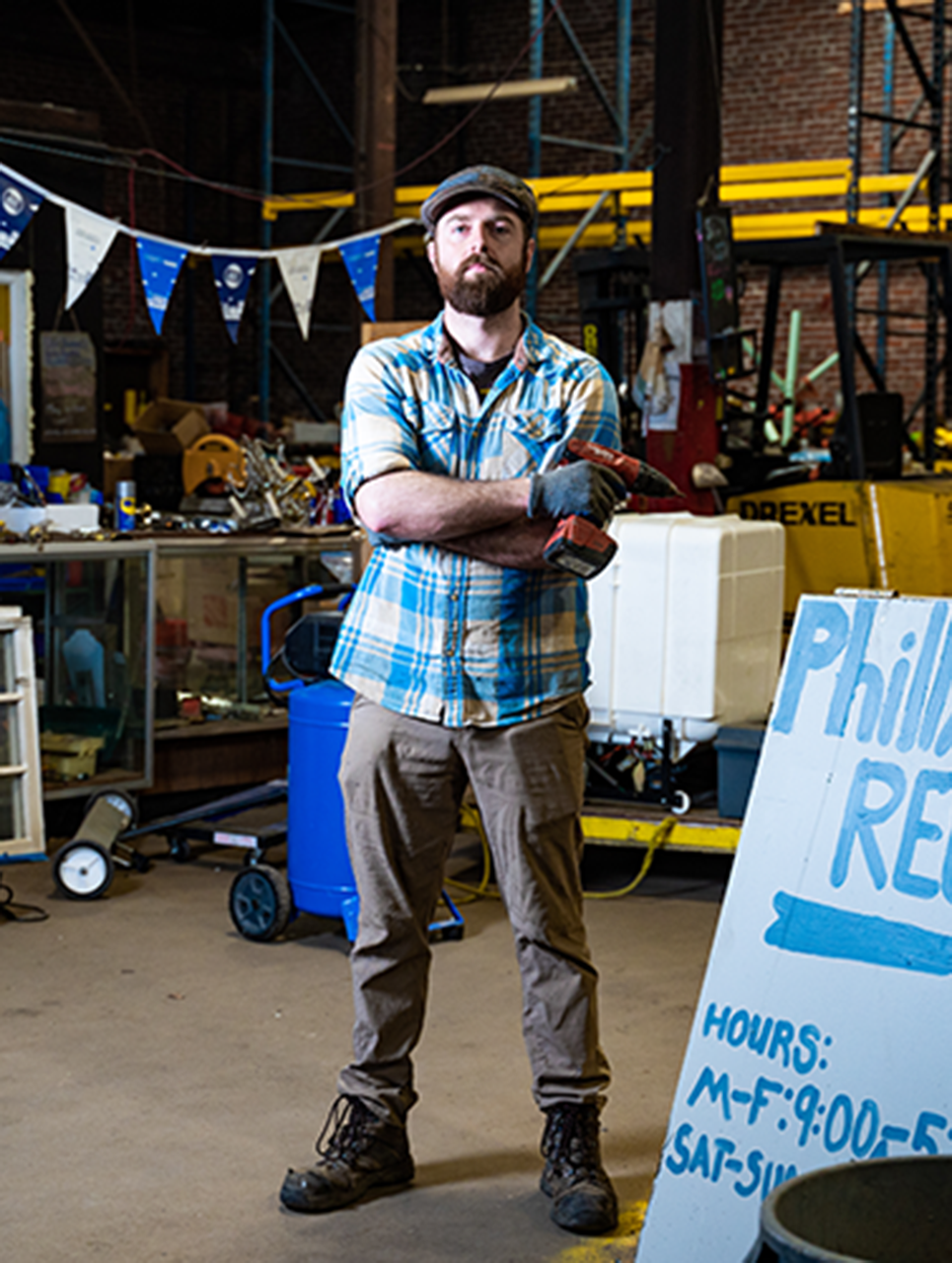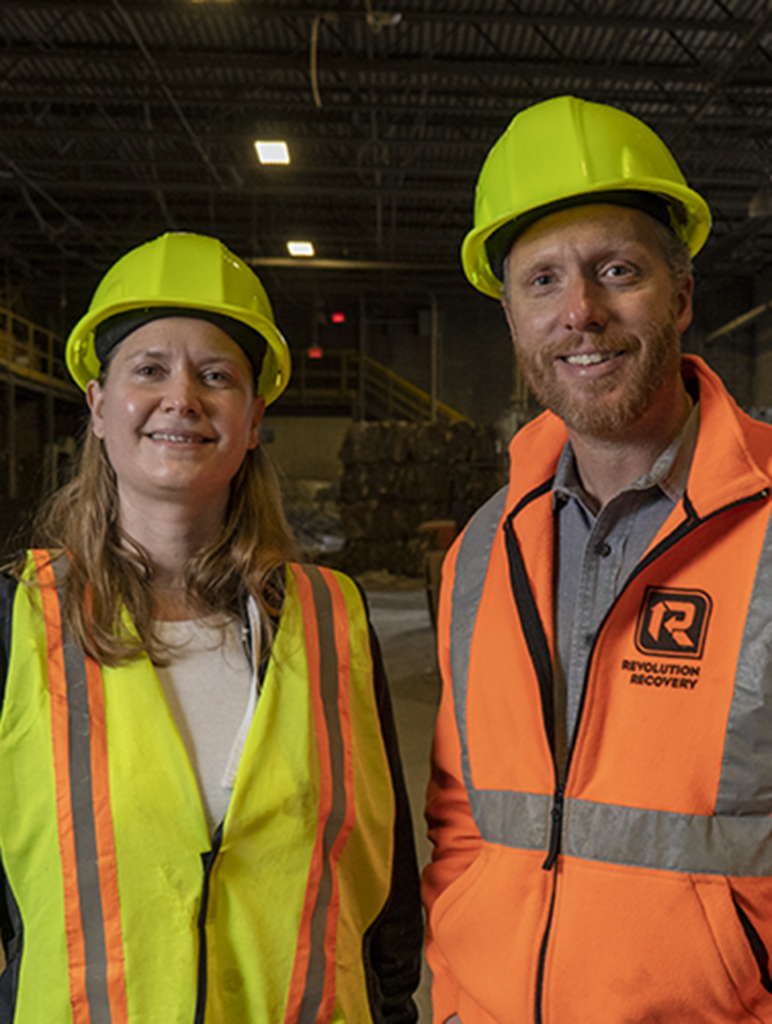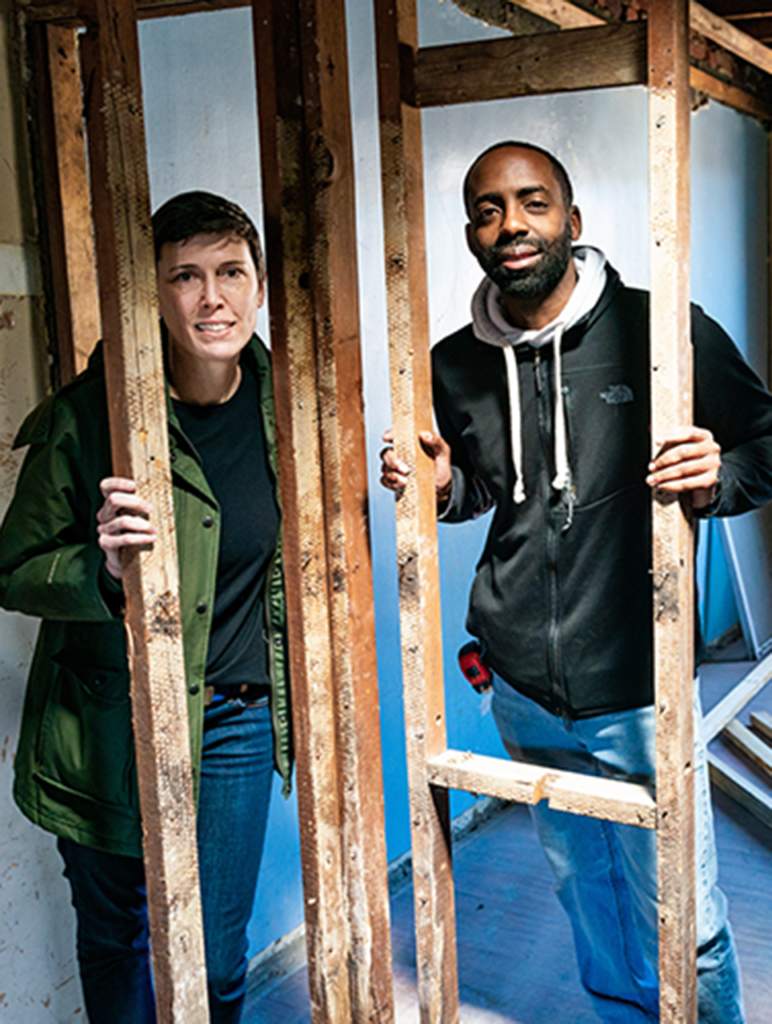To Greg Trainor, executive director of Philly Reclaim, deconstruction is a no-brainer.
An environmentally-friendlier alternative to demolition, deconstruction diverts building materials from the landfill and enables, through reuse, preservation of the embodied energy therein. And because systematically dismantling a building is more labor-intensive than leveling it with an excavator or a wrecking ball, deconstruction promises job creation, too.
Trainor has had a deconstruction-based vision for a better Philadelphia for over a decade now. Inspired by his tenure in AmeriCorps, he incorporated Philadelphia Community Corps (PCC) in 2011 with the goal of revitalizing blighted neighborhoods by deconstructing abandoned buildings. In 2014, he added job training as well as Philly Reclaim, the retail arm of PCC and the city’s only nonprofit building material reuse center.
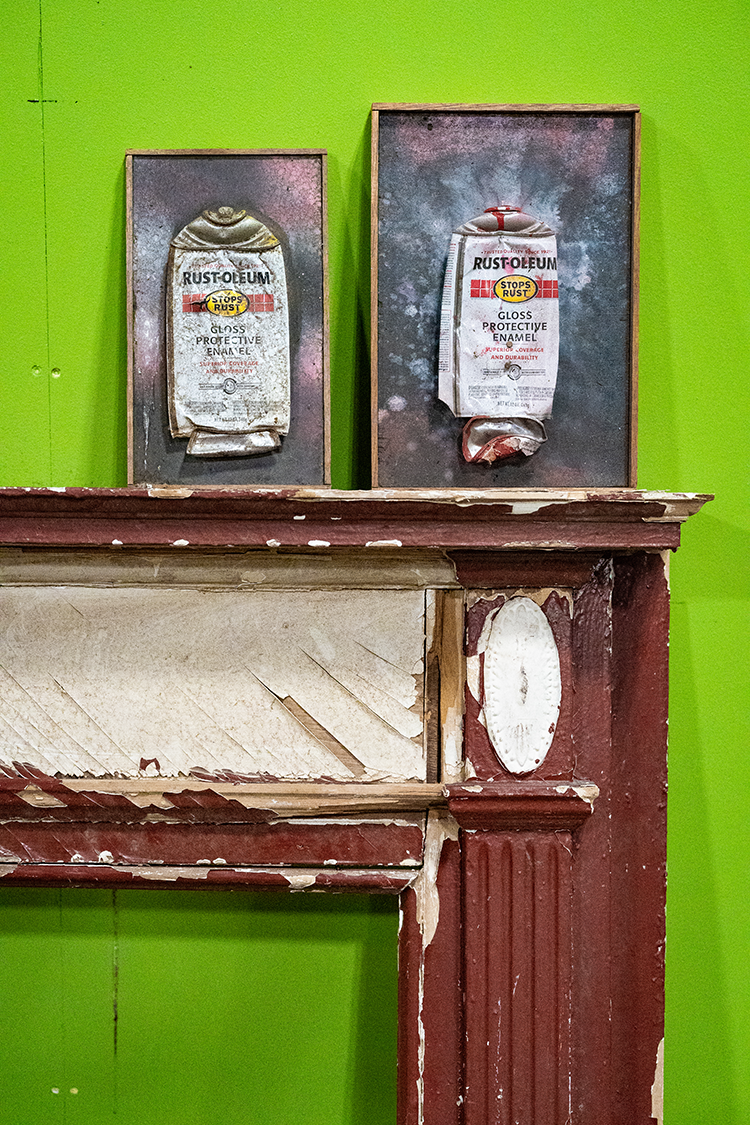
Press coverage of PCC and Philly Reclaim at its pre-pandemic peak portrayed it as an enterprise with a solid handle on all three components of the triple bottom line: people, planet and profit.
There’s no more time to act like everything is great.”
— Greg Trainor, founder of Philadelphia Community Corps
Its yearlong job training program provided Philadelphians facing barriers to employment the opportunity to become certified deconstruction technicians. Tax deductions incentivized developers and individual property owners alike to not only donate reusable materials but also hire Trainor’s crews to do the deconstruction—of row houses, churches, factories, Main Line mansions, Jersey Shore bungalows and all 250,000 square feet of the old West Philadelphia High School. Between payment-for-service and the sale of architectural salvage, the operation stayed afloat—barely.
“As a startup you have to fake a degree of success,” Trainor says. But he is done pretending. “There’s no more time to act like everything is great.”
The proximate cause of Trainor’s predicament in March was a paperwork error by the Internal Revenue Service. PCC’s 501(c)(3) status was revoked in August 2021 because the office misplaced the organization’s 990 forms. The IRS eventually—after six months and intervention by U.S. Rep/ Dwight Evans’ office—acknowledged the mistake and reinstated the 501(c)(3), but not before PCC, unable to fundraise or offer tax incentives, had suffered a 70% decrease in revenue.
And this was just the latest setback.
“We’ve just been going from one crisis to the next for years,” Trainor says.
PCC has never had the funding needed to staff properly or lock in a resale space. Philly Reclaim has moved three times in the past seven years, relocating its fragile and unwieldy inventory from one barely functional warehouse to another. (Trainor tells of frequent flooding and power outages and of restrooms “literally collapsing into the floor.”)
Trainor’s ability to hire help has waxed and waned with the outfit’s boom-bust profitability cycle. He is operating solo as of March, putting our conversation on hold periodically to help customers.
“I’m here by myself trying to keep this thing going,” he apologizes.
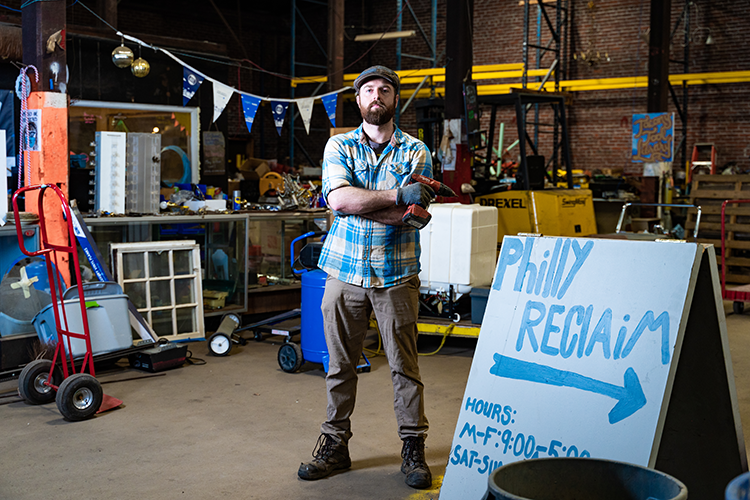
Trainor readily concedes his own shortcomings and missteps. Perhaps it would have been wiser to establish a for-profit contracting business before launching PCC, to achieve financial stability himself before taking the helm of a nonprofit. And maybe he should have undertaken one of the enterprise’s halves—the building material reuse center or the deconstruction job training program—in isolation rather than trying to realize his whole vision all at once. He could have been more disciplined about making sure the organization didn’t overextend itself, that it lived within its perennially meager means.
But even as Trainor questions his own decisions, he also questions Philadelphia’s failure to step in and substantively support his poorly-funded dream.
Trainor would like the city to contract PCC to deconstruct some of the hundreds of buildings it demolishes annually. He’d like Philly Reclaim to be considered for at least semi-permanent tenancy in one of the vacant city-owned buildings in, for instance, the Navy Yard. Cities such as Portland, Oregon, have used ordinances to get deconstruction and reuse industries off the ground, he notes, and Baltimore’s “whole ecosystem” of deconstruction and reuse nonprofits has proven the feasibility of the model he’s striving to implement in Philly.
Trainor has talked deconstruction with state senators and representatives, City Councilmembers as well as staffers of city agencies such as the Philadelphia Housing Authority, the Department of Licenses and Inspections (L&I) and the Managing Director’s Office.
“They all tell us the same thing, which is they love what we do,” Trainor reports.
Director of the Office of Sustainability Christine Knapp affirms this when Grid asks for insight into the city’s thinking on deconstruction and reuse operations like Trainor’s: “The city supports the mission of Philadelphia Community Corps/Reclaim Philly … and continues to engage with the organization.”
L&I commissioner Ralph DiPietro was slated to tour Philly Reclaim’s facility, Knapp says, and “the Commerce Department has worked with the organization to identify alternate spaces for growth as well as funding opportunities, and will continue to do so.”
Trainor has received comparable encouragement for years now, and yet material assistance never seems to materialize. But why?
“There is a lot of complexity that we have not had the bandwidth to explore due to the pandemic and related budget constraints,” offers Knapp.
Economic development consultant Terry Gillen offers another perspective.
“People in the government are usually really overworked, and they’re doing what’s on their plate right now,” says Gillen, whose work with the Local Initiatives Support Corporation (LISC) Pay for Success program taught her about coaxing policymakers to think on timescales longer than one- or two-year budget cycles. “Unless the mayor embraces deconstruction, it’s not in any one department head’s interest to do this.”


